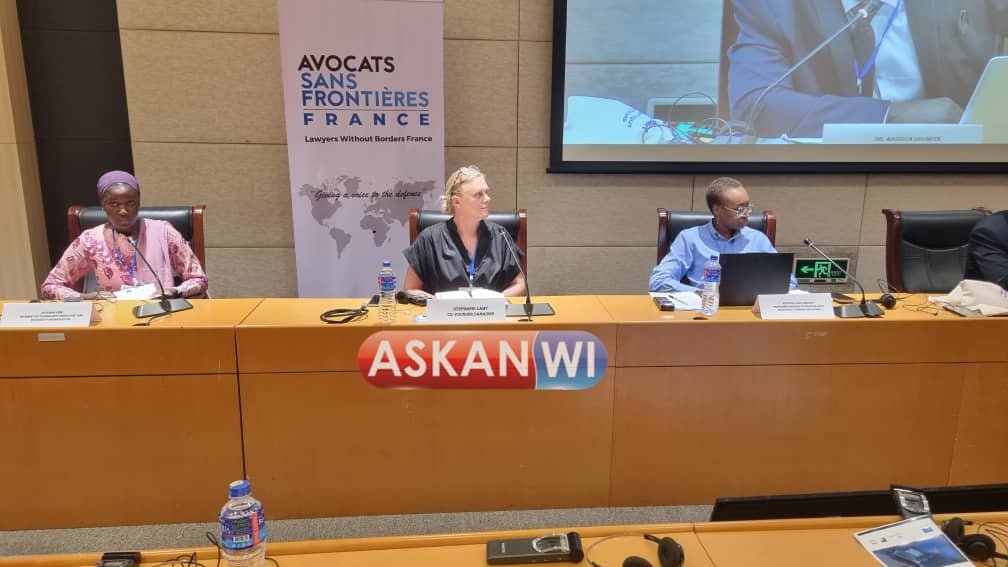African Youth Key to Advancing AI and Bridging the Digital Divide
ASF - Panel Discussion © Askanwi
By Yusef Taylor, @FlexDan_YT
Avocats Sans Frontières France (ASF) held a panel discussion during the NGO Forum preceding the 85th Ordinary Session of the African Commission on Human and Peoples’ Rights (ACHPR), focusing on “Artificial Intelligence (AI) and Human Rights in Africa: Navigating the Future of Governance and Development.”
The event, held on 19th October 2025 at the Sir Dawda Kairaba Jawara International Conference Center in Bijilo, brought together experts to discuss how Africa can harness AI responsibly while safeguarding human rights.
One of the panelists, Ms. Wynyfred Achu-Egbuson from the EU Delegation to Nigeria and ECOWAS, highlighted both the opportunities and challenges AI presents for Africa’s youthful population. She noted that Africa’s youth could play a critical role not only in advancing and adopting AI but also in bridging the continent’s digital divide.
The moderator, Dr. Abiodun Odusote, an Associate Professor at the University of Lagos, set the tone by explaining that AI is not just disrupting the way we work — “it’s disrupting everything about us.” While it comes with huge advantages, he cautioned that it also raises serious concerns, including privacy intrusions that must be addressed from a human rights perspective.
ASF, in its statement, stressed the need for technological solutions that strengthen rather than undermine human rights, dignity, freedom, and the aspirations of Africans. The discussion explored how AI can be used responsibly to promote justice, democracy, inclusive governance, and sustainable development across the continent.
The panel featured Dr. Y. Z. Ya’u, Executive Director of the Centre for Information Technology and Development (CITAD), and Aji Fama Jobe, an IT Consultant for the World Bank. The ASF representative opened the session in French, outlining existing legal frameworks on AI in Africa, which set the stage for the discussion.
In her presentation, Ms. Achu-Egbuson pointed out that AI is constantly evolving — and so must the laws that regulate it. She explained that data protection and consumer laws differ widely across African countries, citing Nigeria and Ghana as examples. These legal instruments, she said, play an important role in ensuring the ethical use of AI.
“Across the African continent, AI holds huge potential for innovation and for addressing socio-economic challenges by driving development,” she said.
She mentioned that Kenya, South Africa, Rwanda, and Nigeria already have national AI policies, while the African Union’s Malabo Convention provides a continental framework for data protection and AI ethics. At the regional level, ECOWAS is developing its own approach through a Cybersecurity Policy and a Digital Strategy, both of which include guidelines for the ethical use of AI and digital technologies.
However, she also acknowledged key barriers such as poor infrastructure, limited energy access, and weak telecommunications networks, particularly in rural areas, which continue to hinder AI adoption and widen the digital divide within and among African states.
“Even with these regulatory frameworks and policies in place, there are still gaps in implementation across African countries,” she said. “Our laws are only as effective as their enforcement and our ability to hold people accountable when they are violated.”
Ms. Achu-Egbuson concluded on an optimistic note, highlighting Africa’s demographic advantage:
“Africa has a largely youthful population, and the people advancing artificial intelligence around the world are young. This represents a huge potential for the continent to not only embrace AI but also close the digital gaps that currently exist across Africa.”

